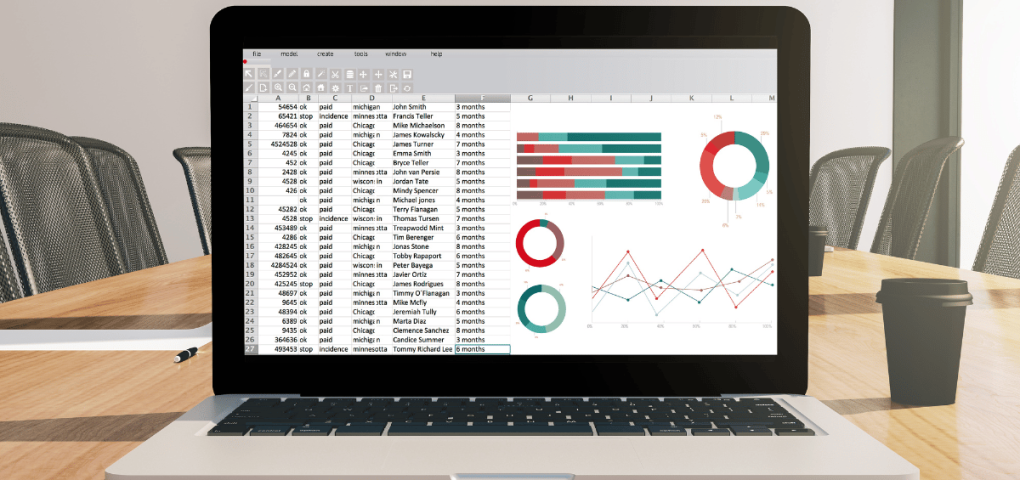A real estate sales tracking spreadsheet can be a precious tool for agents. Real estate agents can more easily see where they are making money and where they need to improve by tracking their sales data in a single place.
In addition, a real estate sales tracking spreadsheet can help real estate agents stay organized and on top of their sales pipeline.
The most important features of a spreadsheet in the real estate business are its ability to track commissions earned, list properties sold, and track leads and prospects.
Other features that may be useful depending on the individual’s needs include the ability to track expenses, forecast future income, and monitor productivity.
How To Create A Real Estate Sales Tracking Spreadsheet
To create your own sales tracker, start by listing all the pertinent information for each deal in separate columns. This should include the sale date, the property’s address, the buyer’s name, the selling price, and other relevant details.
Once you have all your data entered, you can begin tracking trends and patterns over time.
Look for patterns in pricing, location, and buyers to get a better sense of where your business is headed.
By tracking your real estate sales data in a spreadsheet, you can gain valuable insights that can help you close more deals and grow your business. Many agents offer a free spreadsheet so you don’t have to create a new one.
What Information To Include In Your Real Estate Sales Tracking Spreadsheet?
The most critical information to track in your real estate sales spreadsheet is the commissions earned, the list of properties sold, the leads and prospects, and a few important transactions.
This will help you see where you are making money and where you need to improve.
Other information that may be useful depending on the individual’s needs includes tracking expenses, forecasting future income, and monitoring productivity. You can also manage clients and their data using this simple commission tracker.
Commissions Earned
You can use your simple spreadsheet to see how much commission you are earning per sale. This is important because it will help you determine if you are charging enough for your services.
List of Properties Sold
The list of properties sold can help you track your progress over time. Real estate agents can use this information to identify patterns in your sales data.
Leads and Prospects
Tracking your leads and prospects can help you see where you need to focus your marketing efforts. Tracking leads and prospects can be helpful in following up with potential customers.
Expenses
If you want to track your expenses, you can use your real estate sales tracking spreadsheet to do so. This information can be used to identify areas where you are spending too much money and reallocate your budget.
Forecasting Future Income
You can use your real estate sales tracking spreadsheet to forecast your future income. This can be used to budget for upcoming expenses and make sure you are charging enough for your services.
Monitoring Productivity
You can use your real estate sales tracking spreadsheet to monitor your productivity. This can then be used to see if you are working as efficiently as possible.
By tracking this information, you can make sure you are using your time wisely and closing more deals.
Tips and Tricks To Use Your Real Estate Sales Tracking Spreadsheet Effectively
By tracking your real estate sales in a spreadsheet, you can stay organized and on top of your sales pipeline. This data can follow up with leads, keep track of your progress, and ensure you are charging enough for your services.
A real estate sales tracking spreadsheet can also help you see where you need to focus your marketing efforts. This can identify patterns in your sales data and ensure you are closing more deals.
Here are some tips and tricks for using your sales tracking spreadsheet effectively:
- Use your spreadsheet to track your commissions to help you determine if you are charging enough for your services.
- Use your real estate sales tracking spreadsheet to keep track of your progress. This information can help you identify patterns in your sales data and make sure you are closing more deals.
- Use your real estate spreadsheet to monitor your productivity and see if you are working as efficiently as possible.
- Use it to forecast your future income. You can use this information to plan your budget for upcoming expenses and ensure you are charging enough for your services.
- Use your spreadsheet to track your expenses. This information can identify areas where you are spending too much money.
Get A Visual Representation Of Your Sales Data

Every agent prefers a visual representation of their sales data in order to easily assess what needs to be improved and where they currently stand in their real estate business.
By tracking your real estate sales in a spreadsheet, you can generate graphs and charts that will help you get a visual representation of your sales data. This information can identify patterns in your sales data and ensure you are closing more deals.
Conclusion
A real estate sales tracking spreadsheet can be an incredibly valuable tool for a real estate agent.
It can help you track your sales data, identify patterns, determine net income and cash flow, and make more informed decisions about your business.
By including the most critical information in your real estate sales tracking spreadsheet using tools like Google Sheets, you can ensure that you are making the most of this powerful tool. You can also download free real estate business templates online!
A good sales tracking spreadsheet can significantly impact your productivity and effectiveness as an agent. Using it correctly can help you close more deals and increase your commission earnings.
If you’re not using a real estate sales tracking spreadsheet, you’re missing out on a valuable tool that can help you succeed in your career.





